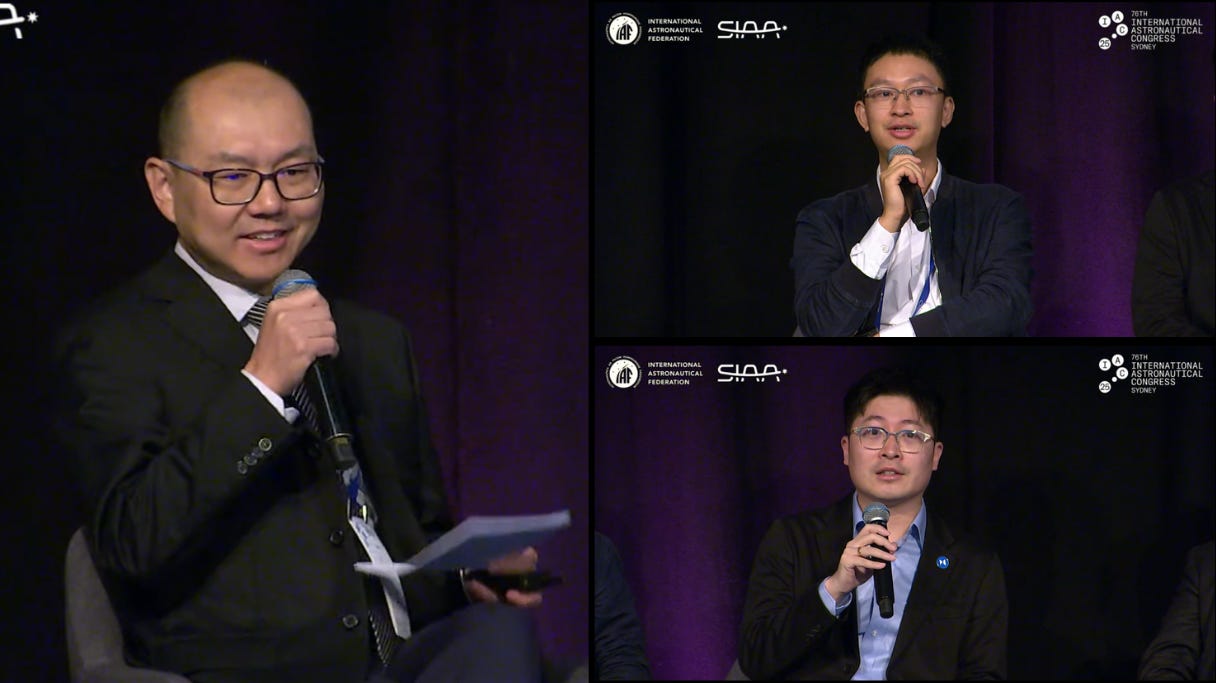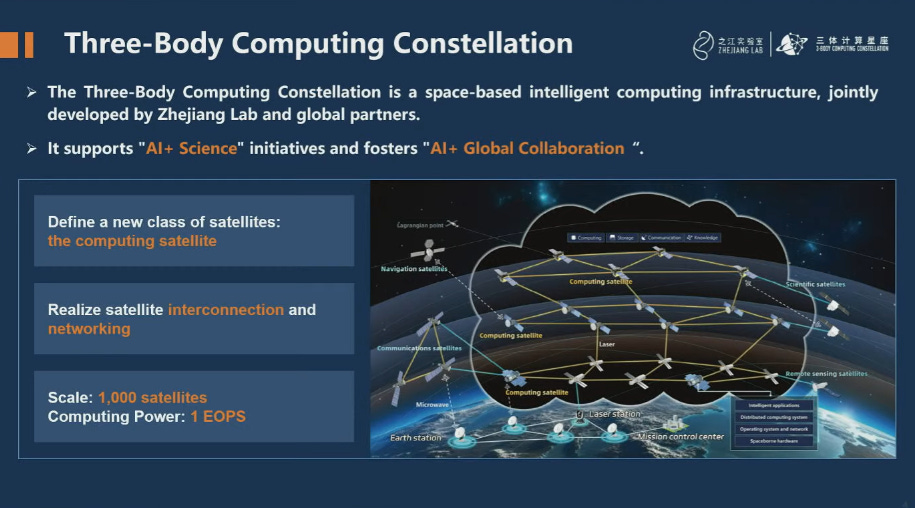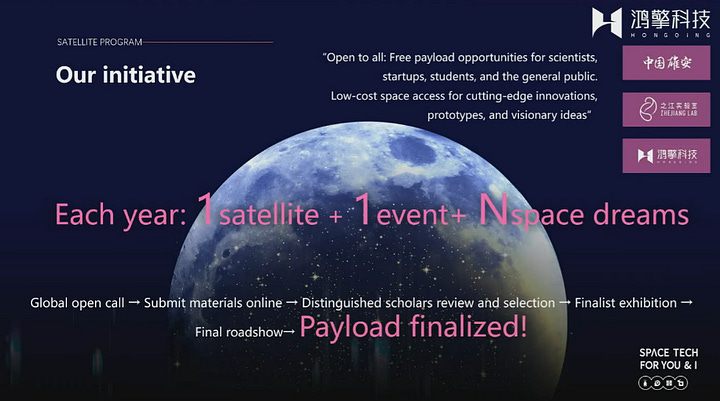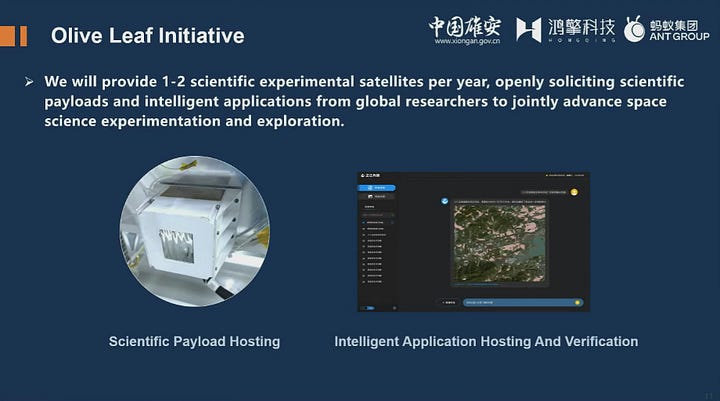Chinese Firms Announce Space Access Initiative, Detail Computing Constellation
Global partners are being sought as collaborative space projects are outlined by commercial enterprises.

At the 76th International Astronautical Congress in Sydney, Australia, on October 2nd, the panel Space Computing: Global Open Science and AI in Space was held, where two Chinese commercial space enterprises spoke about their projects alongside international researchers.
Introducing their project to an international audience, Zhejiang Lab’s Yi Yuan, Research Professor of Space Computing Systems, and Lijun Huang, Deputy Director of Space Computing Systems, explained that the Three-Body computing constellation, being developed with ADA Space, is planned to be an AI-enabled space computing infrastructure to allow for the processing of satellite data in space. Some example use cases were the storage, analysis, and beaming back of finished results from scientific and monitoring spacecraft that generate too much data to be downloaded. The constellation would basically free up capacity of China’s ground-based communication antennas and data centers.

For enabling an orbiting compute infrastructure, Zhejiang Lab has developed high-processing throughput computers to allow for analysis of customer data, which have internal routers to move information of up to one terabyte around at peak, and laser interlinks capable of beaming data between computing spacecraft at a speed of up to two hundred gigabits per second.
Quentin Parker, Director of the Laboratory for Space Research at Hong Kong University, added that the benefits of space-based computing are better power efficiency with solar panels, as well as no direct impacts on worsening climate change to run them long term (orbital launch and manufacturing would release greenhouse gases). But he also noted that there is a risk that one of the satellites could be lost to space debris.
When asked about deployment plans, Yi Yuan and Lijun Huang said that over ten years, one thousand satellites will be sent into orbit, with around one hundred planned to be deployed in about three years. Timelines to launch the full constellation of almost three thousand AI spacecraft were not mentioned.
Following afterward on the panel, Xu Yan, Executive Director of LandSpace HongQing Technology, announced the Olive Leaf Initiative, stated to be a non-profit platform. Citing a need to send more groundbreaking technology into space, it was shared that the initiative will offer the ability to send payloads and satellites into orbit through yearly rideshare opportunities for ‘free’1, through HongQing’s satellite experience and LandSpace’s Zhuque series of launch vehicles.


The initiative is envisioned to be a collaborative platform for developing new technologies and bringing benefits to countries and communities that have not previously had access to space. Olive Leaf is somewhat similar to the recently launched International Deep Space Exploration Association, which aims to facilitate collaborative innovation in the global space community.
Before Xu Yan’s section, one of Zhejiang Labs’ slides also mentioned the Olive Leaf Initiative, with the company offering a few opportunities to ‘piggyback’ scientific payloads on Three-Body Constellation satellites, utilizing leftover spacecraft resources.
Farkhod Makhmudkhujaev, Head of Artificial Intelligence and Programming Department at the Center for Space Monitoring and Geoinformation Technologies in Uzbekistan, during his part of the panel, hoped that in-space computing and AI could be open access to build up international trust for common benefits. Toward the panel’s conclusion, Lijun Huang mentioned that Zhejiang Lab would like to work with more global partners through open collaboration and spacecraft-to-spacecraft link standardization.
The panel, Space Computing: Global Open Science and AI in Space, begins about ten minutes into the live stream replay embedded above.
Some costs, like transportation, testing, and development, will likely still be present.


